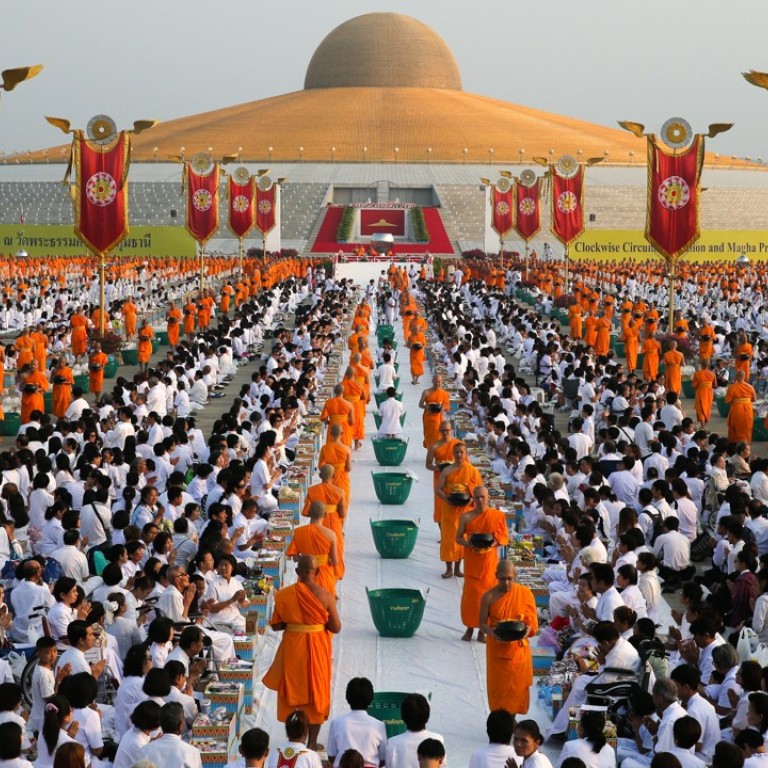
Thailand’s monks run amok, but will junta’s crackdown answer its prayers?
The military government, under pressure to hold elections and seeking a popular move, has launched a campaign to clean up the monkhood. But in stoking Buddhist nationalism, it is playing with fire
In Thailand, it is often said that Buddhist monks should not get involved in politics. However, today they are front and centre as the junta launches a campaign to clean the monkhood’s tarnished image following years of scandals involving corruption, drugs, sex and even murder.
But far from an altruistic effort, the junta’s campaign is seen as a political strategy to win hearts and minds amid mounting pressure to hold elections after four years of military rule.
Looking within: what’s behind Thailand’s Buddhist-Muslim divide?
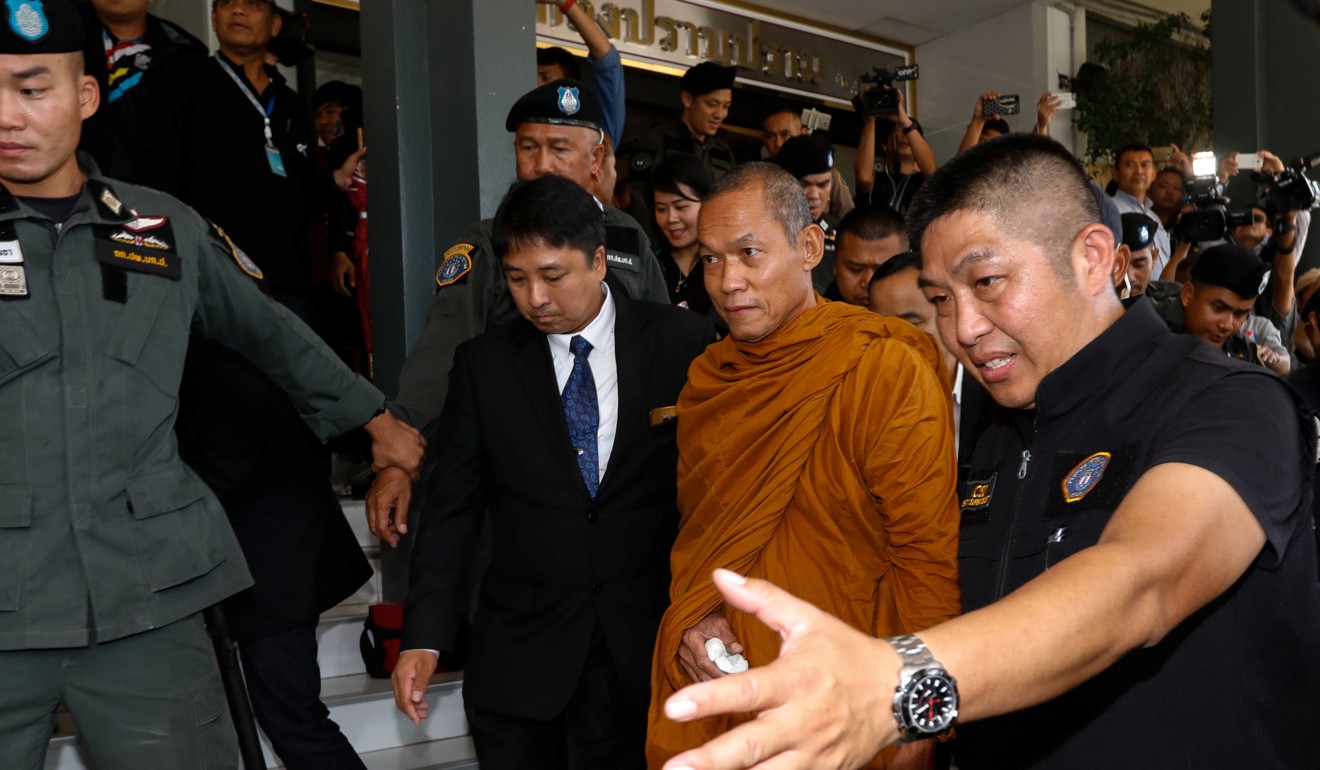
In late May the junta raided four temples and arrested several prominent monks, including the popular Phra Buddha Issara and Wat Saket’s ex-abbot, Phra Phrom Sitthi. Phra Phrom Methee, another of the monks wanted by the police, fled to Germany and sought asylum after he was arrested at Frankfurt airport.
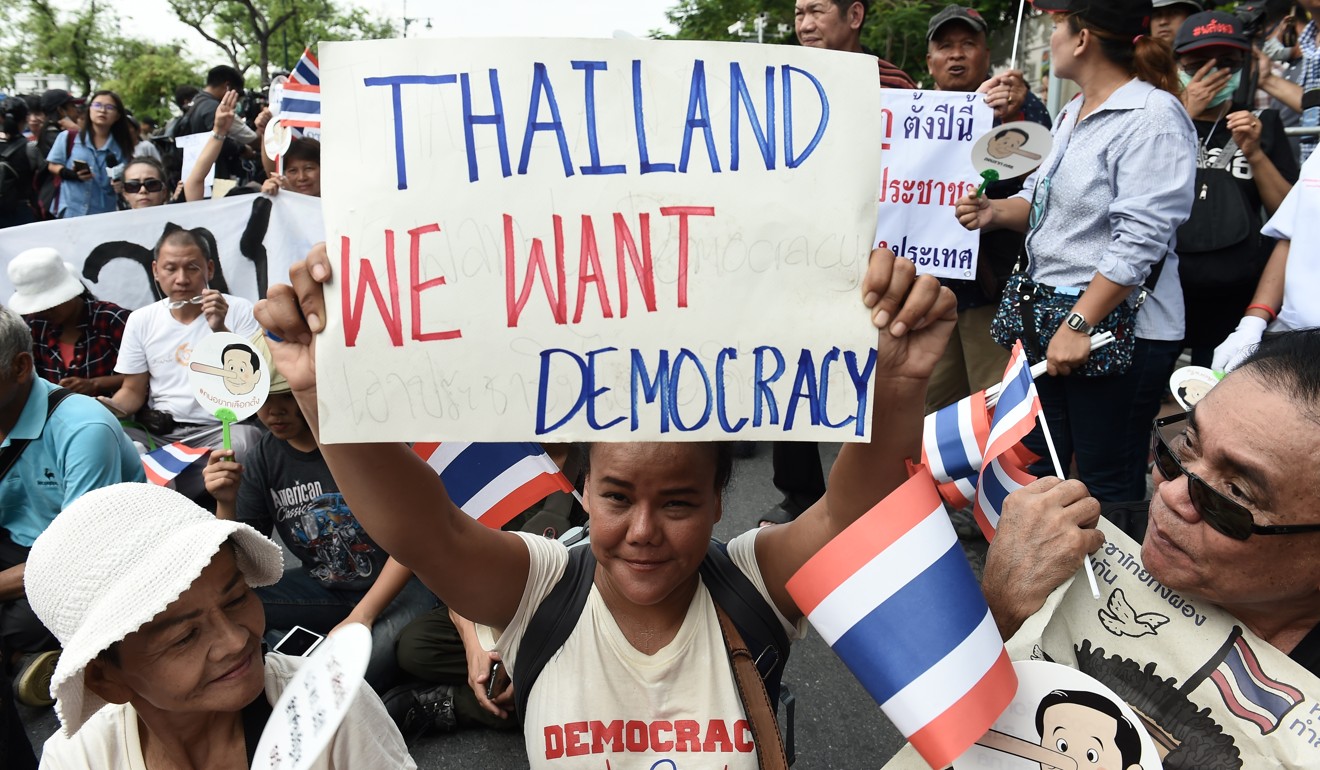
All of the monks were defrocked, following charges of embezzlement, in an effort to hold temples accountable for the funds they manage, authorities said.
Yet religion might be a winning card to ensure the stability of the military junta in a country where more than 90 per cent of the population is Buddhist. “They want to please the mainstream Buddhists,” explained Gothom Arya, associate professor and adviser at the Institute of Human Rights and Peace Studies at the Mahidol University. “This matter of religion is emotional … Most Thais feel they belong to this community. It is easy to campaign for it,” he added. Moreover, the strategy would be part of a wider plan to foster nationalism based on the traditional concepts of “nation, religion and monarchy,” he said.
What the Thai army took from Thaksin Shinawatra’s playbook
For Khemthong, the religious campaign may also have “long-term implications in the elections” that have been promised for February 2019, despite polls having been delayed several times before. “Some are going to play the religion card [in the elections]. Part of the main objective is to guide or instruct Thais to choose the good person, which specifically for the NCPO [National Council for Peace and Order] means Prayuth,” added Khemtong, referring to Prime Minister Prayuth Chan-ocha. However, it is still unclear if Prayuth, who led the 2014 coup, or an army party will run in elections, even though the new constitution opens the door for a non-MP to be chosen as prime minister.
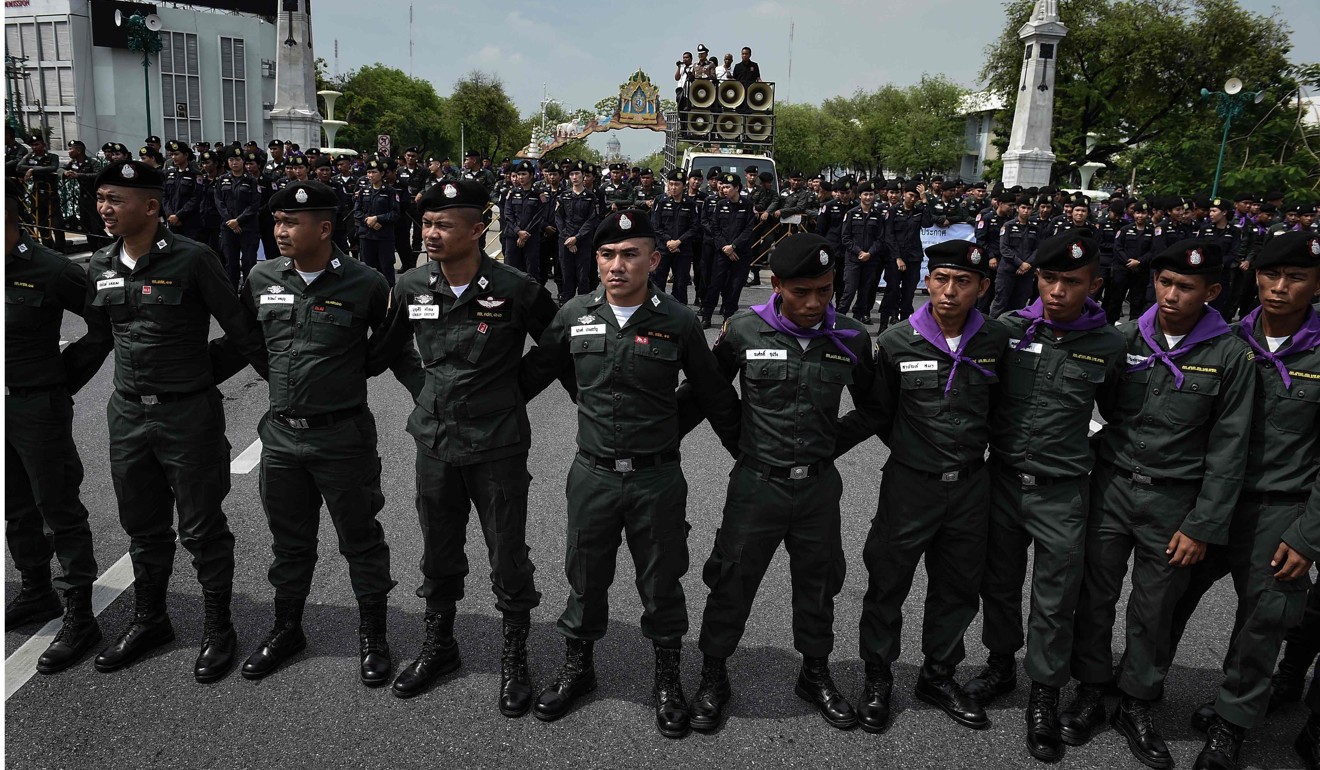
Moreover, the crackdown could also neutralise the political influence of the monkhood that has become increasingly politicised since former prime minister Thaksin Shinawatra made Thai politics more divisive. “The Sangha [governing body of Thai Buddhism] and wider Buddhist community has become increasingly polarised since 2005, in parallel with the growing divide between supporters and opponents of Thaksin,” wrote French journalist Arnaud Dubus in his recent book Buddhism and Politics in Thailand.
Thaksin, who became prime minister in 2001 and was toppled in a coup d’etat in 2006, built a large support base in rural areas in the North and northeast of the country thanks to his populist policies, but was despised by Thai elites and the military.
Yet most of the monks are believed to be aligned with the red-shirt movement, a pro-Thaksin group, since they come from the same areas. Some joined their protests in 2010. Analysts say that the crackdown is targeting the monks more strongly linked to Thaksin.
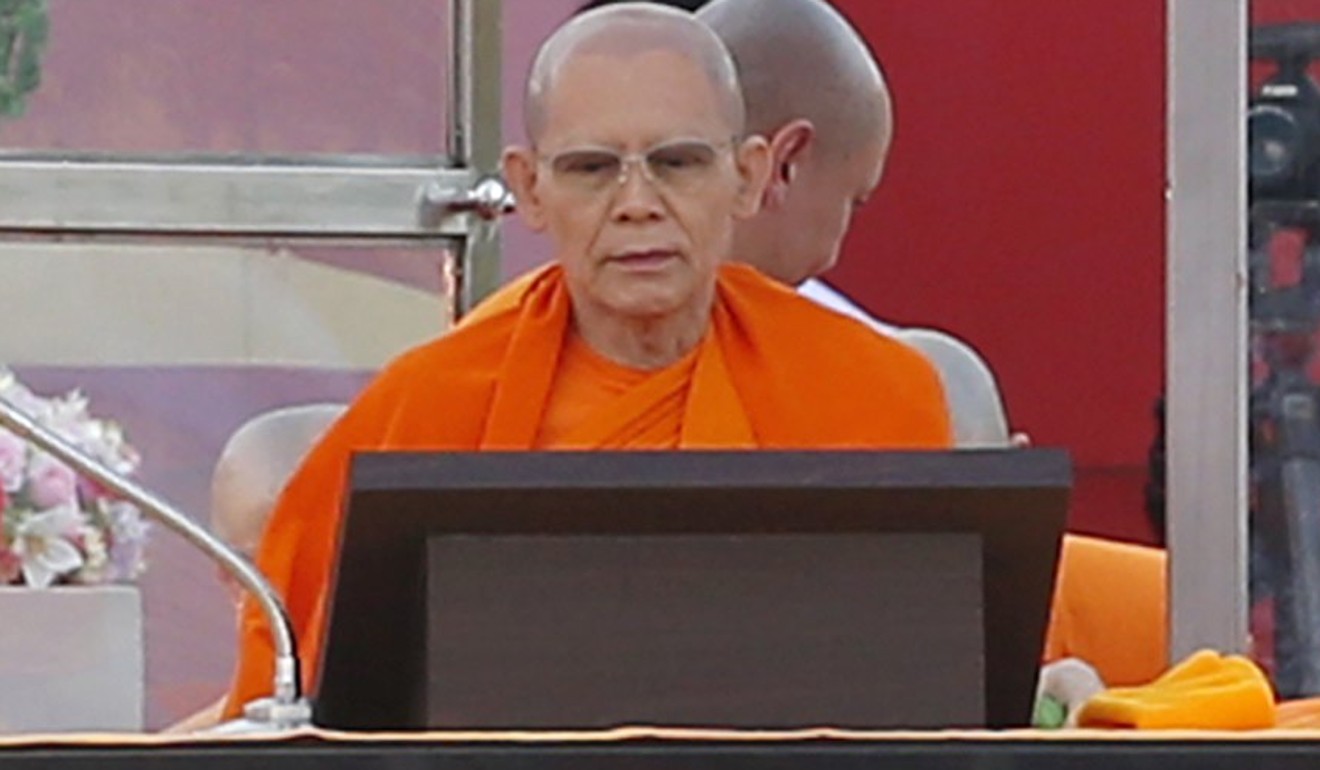
One of the most notorious cases was the Dhammakaya temple, a wealthy and vast monastery located in the outskirts of Bangkok, that was under siege for 23 days last year in a hunt for its abbot, Phra Dhammachayo, who had been accused of embezzlement. “They suspect that Dhammakaya is on the side of Thaksin and Thaksin has become the enemy of the junta,” said Gothom Arya. Last year, the junta also blocked the nomination of a red-shirt monk as Supreme Patriarch, the highest ecclesiastical figure in Thai Buddhism, overruling the traditional law of choosing the most senior monk in the country for the position.
Is time up for Thailand’s junta after Watchgate scandal?
However, the recently arrested Phra Buddha Issara is linked to the anti-Thaksin movement, the yellow-shirt movement, and was one of the key figures in the protests that led to the toppling of the government of Thaksin’s sister, Yingluck, in 2014. The monk has been accused of supporting robberies during the 2013-14 demonstrations and using the initials of the names of the late King Rama IX and her wife on Buddhist amulets without royal permission.
The campaign could also have an impact on growing tensions between Thailand’s Muslim and Buddhist communities. These tensions are manifest at schools in Thailand’s three southernmost provinces, a predominantly Muslim area where a conflict with insurgent groups has taken nearly 7,000 lives since 2004. Until recently, the wearing of the Muslim scarf, or hijab, has been respected. But last month, Anuban Pattani School tried to ban the hijab on the grounds that the school is within the compound of a Buddhist monastery.
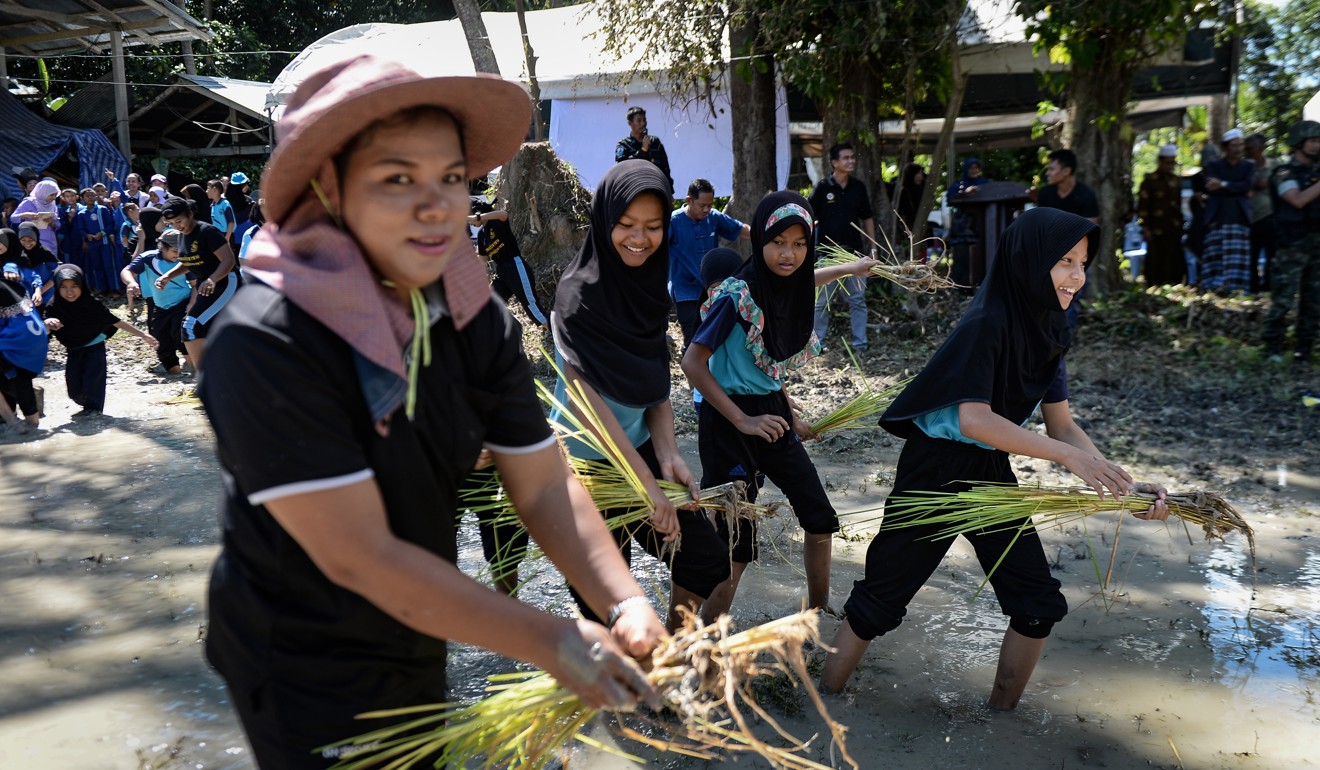
The school finally backed down, but the Ministry of Education reviewed days later its rules to allow schools to decide on dress codes for the students. Far from being an isolated incident, other similar episodes have raised concerns about an increasing Islamophobia in the country fuelled by the examples of Myanmar and Sri Lanka.
“There is a friction between Buddhists and Muslims,” said professor Gothom Arya. Last year, some groups in Isaan, a rural region in the North-east, created a page on Facebook called “No mosques in Bueng Kan”, referring to one of the Thai provinces bordering Laos. Hate-filled messages and images with signs of “No masjid (No mosques)” were shared. However, that Facebook page no longer exists. “Some people feel that Muslim populations in other parts of the country are increasing and that they pose a threat to Buddhism,” said Ekkarin Tuansiri, a politics researcher at Prince of Songkhla University in Pattani province.
Thailand chases Chinese money, but at what cost?
This sentiment has become a powerful tool for some extremist groups that are campaigning for a supremacist position of Buddhism in the country. “The country is at risk of an Islamic invasion,” said Banjob Bannaruji, an expert on Buddhism and chairman of the Committee to Promote Buddhism as the State Religion, a group that is lobbying to get the faith declared as the state religion. “Morality has to lead the nation.”
Groups like Banjob’s have been trying for more than a decade to push, without much success, a constitutional recognition of Buddhism. Thailand has had no less than 20 constitutions in less than one century, three since 2007. However, the latest, which took effect in April 2017, was seen as a big triumph for the Buddhist cause. It states that the government should “promote and support education and dissemination of dharmic principles of Theravada Buddhism for the development of mind and wisdom development, and shall have measures and mechanisms to prevent Buddhism from being undermined in any form.”
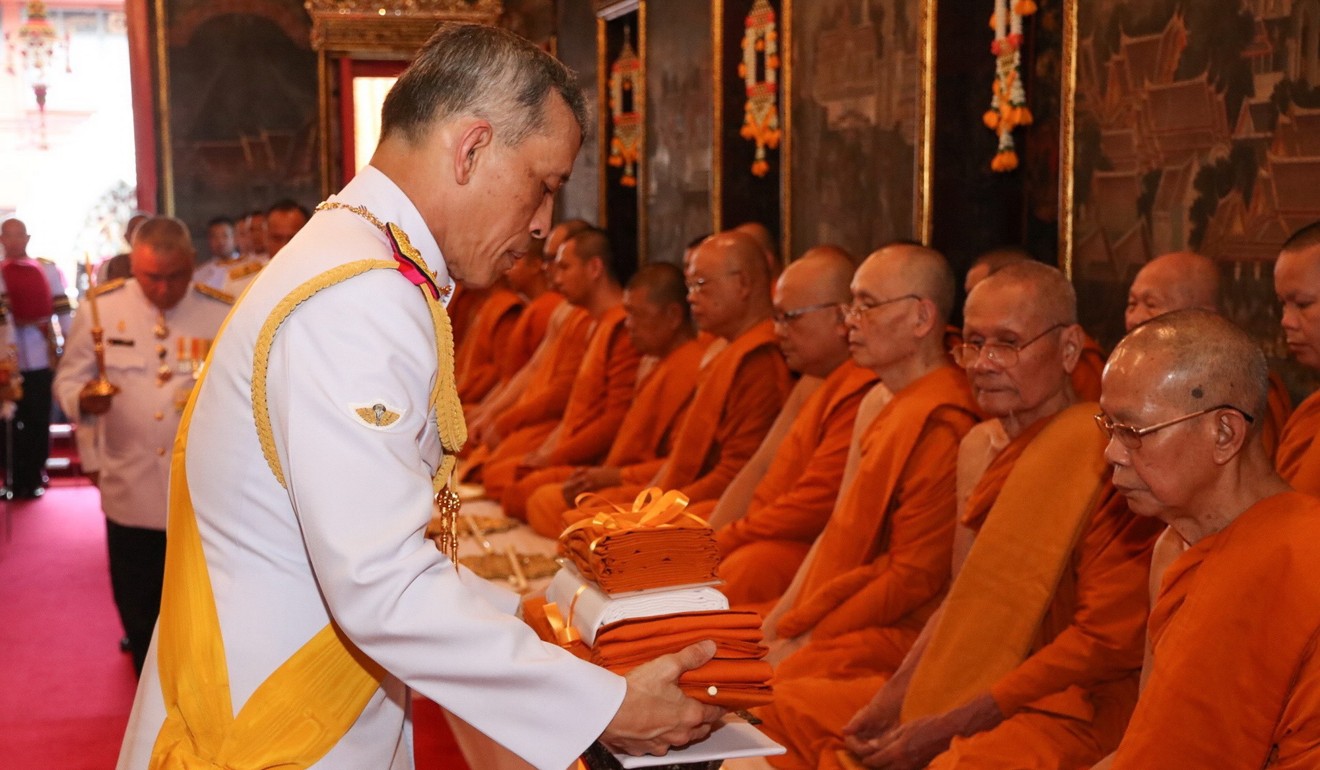
“Buddhism was this time clearly put at a level superior to other religions,” writes French journalist Arnaud Dubus in his book.
The provision has been criticised by human rights defenders and other religious communities. “We are very concerned about this section in the constitution … written to promote only some kind of Buddhism,” said Angkhana Neelapaijit, member of the National Human Rights Commission. “A majority of Muslims in the South didn’t vote yes for the constitution [on the referendum held in August 2016]”, the activist explained. Some Muslim politicians also recently split from the Pheu Thai, the party linked to Thaksin, to form their own party in the South. “If there is anti-Muslim rhetoric among these groups … in normal politics, the government should do something to ease the tension. But if you have a Buddhist-leaning government, it is very unlikely that the government is going to do it,” said Khemthong from the University of Bristol.
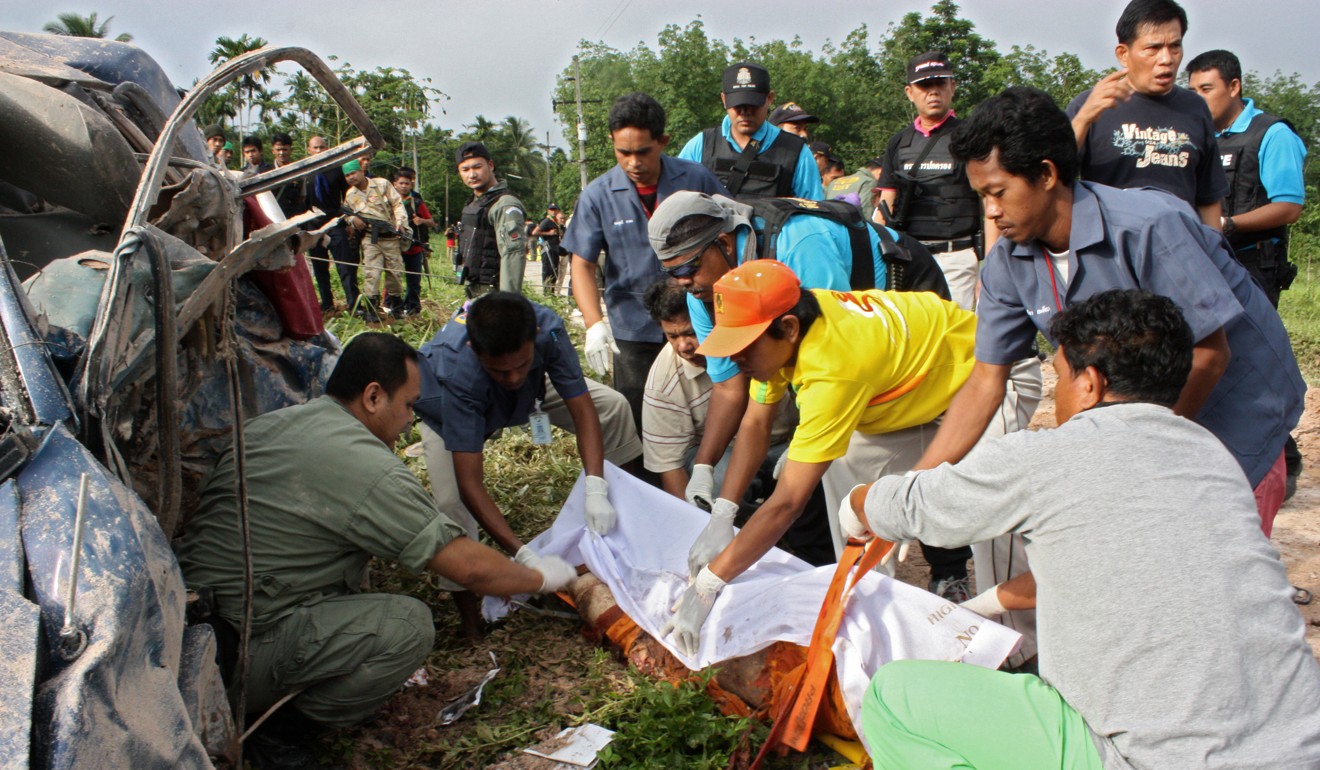
However, this supremacist campaign cannot be successful without a model monkhood, said Banjob. “It is brave to investigate Buddhism, but I agree with making rules clear,” he said. Previous attempts, such as banning the sale of amulets on temple grounds or the more strict rules for monks issued by the Sangha, have been insufficient. “Compared to Muslims, Buddhist are weak in morality. If we want to defend our own religion, Thai people have to go back to the original [Buddha] precepts,” he added.
The government’s strategy could be dangerous, since many monks are reluctant to accept a greater accountability. “From the government’s perspective, the Sangha is under the government. But monks see lay people as inferior,” explained Khemthong. The scholar says monks in Thailand want to receive financial support from the government but don’t think they have to be held accountable for how they spend it.
“They think that every move [of the junta against them] is politically motivated. This shows how little the Sangha trusts the junta.” ■

